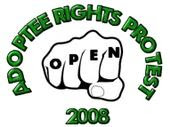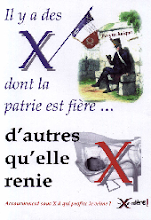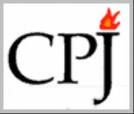 SUNDAY LONDON TIMES
SUNDAY LONDON TIMESJanuary 13, 2008
Children cheated of an identity
David Alton
The heartrending story of twins who were separated and adopted at birth, only to meet later in life and marry, could easily be dismissed as a Greek tragedy, a one in a million coincidence. That would be a mistake.
With many children now conceived by in vitro fertilisation (IVF), and having the same biological parent, the chances of this happening again have significantly increased.
The case illustrates the importance of providing every child - whether born naturally, as these twins were, or by IVF - with a true record of their identity. A law professor has been in touch with me to say how such a record averted a marriage between an adopted brother and sister.
The current debate in parliament about what appears on birth certificates could either make the situation worse – by allowing the true identity of biological parents to be removed – or provide greater transparency and truth. You only have to look at websites such as the Donor Sibling Registry to see why this matters.
This database enables parents to make contact with the anonymous donors who supplied half of the genes of their offspring; children can search for their unknown genetic parents; and families may make contact with genetic half-siblings with a donor in common.
Thousands of people have registered on that site looking for sperm donors, parents and for the children they helped to conceive. The site states that the largest match made so far has been between 26 half-siblings to a single donor, who is also listed.
One man, a Californian artist, is father to 25 babies by 18 women. In Britain, the Human Fertilisation and Embryology Authority (HFEA) draws the line at 10 donor-conceived children.
In the case of sperm donation – since the sperm donations would probably be at the same IVF clinic or at least in the same city, and possibly all within a year or so, for example a student at university – there may well be a good chance that children born from these donations will grow up in the same city at around the same time, possibly some of them going to the same school, even in the same year group.
Without absolute knowledge of your genetic profile the possibility of unwitting incestuous relationships is obvious.
Three years ago I pressed the government to give British children the right to know the identity of their biological parents – and the donor anonymity that previously applied was lifted. But this tells only half the story. We gave the right to inquire but created no duty to tell.
The HFEA is the guardian of that information, and at 18 a person has the right to ask for those details – in law they might have been married for two years by then. More problematic still is that your inquiry will be dependent on second sight – some intuition that the parents bringing you up are not your natural parents. How many young people would call the HFEA, or even think of doing so?
Witnesses who gave evidence to parliament expressed anger and frustration and described the often frantic efforts they had made to discover their true identity. One woman said: “I was angry, I had been cheated, and discriminated against, and lumbered with a fake identity.”
We must also guard against undermining the dignity of human procreation and the human relationship between one generation and the next and turning children into accessories.
The United Nations Convention on the Rights of the Child is clear: we must ensure that every child can “preserve his or her identity”.
For an adopted child we have increasingly moved towards telling them the truth at an early age. That good principle should apply to donor-conceived children. Don’t they have the same right to know the truth?
In a world that for security reasons wants to identify us by our DNA and test us for genetic disorders, it would be wrong not to provide this information. If a child discovers the information by accident, or as the consequence of a tragic scenario, they will despise those who kept it from them. We may also jeopardise their future health.
One of the deepest questions that we ask ourselves is “who am I?” The right to lineage affects us all – and uncertainty of parentage can be profoundly unsettling.
The guidance of the Oracle of Delphi to the Lydian king, Croesus, was that to be happy, he must know himself. The popularity of television programmes such as Who Do You Think You Are? shows that those ancient desires to know lineage, genealogy and identity are not confined to antiquity.
Baroness Ruth Deech – an expert in family law – is rightly asking parliament to reject the government’s proposal to allow the identity of fathers not to appear on birth certificates. “Mine is a plea not to include a deliberate biological lie on a birth certificate,” she says.
So what should we do instead? When a child comes into the world, parents would get two birth certificates, a long and short version. These should accurately tell the child’s true story.
One certificate could contain the basic facts of your birth while the longer version could record the fact of conception by donor. When using the certificate to obtain a passport or driving licence it would thus be possible to sustain family privacy while also allowing for truthfulness.
Crucially, this legal document would be a guarantee that every citizen would be able to establish privately the details of their true identity.
That, in turn, might lessen the chances of tragic outcomes in the future.
David Alton is an independent crossbench peer
Link to article








1 comment:
This is a really important article!! Donor conceived children and adults are being denied ALOT, and their identity movement seems to parallel adoptees and our identity rights. DC seem to have some added issues, but the bottom line is that all of our rights are coming second to the rights of those who conceived or adopted us, and I believe the childs one day adults rights should be first.
Post a Comment